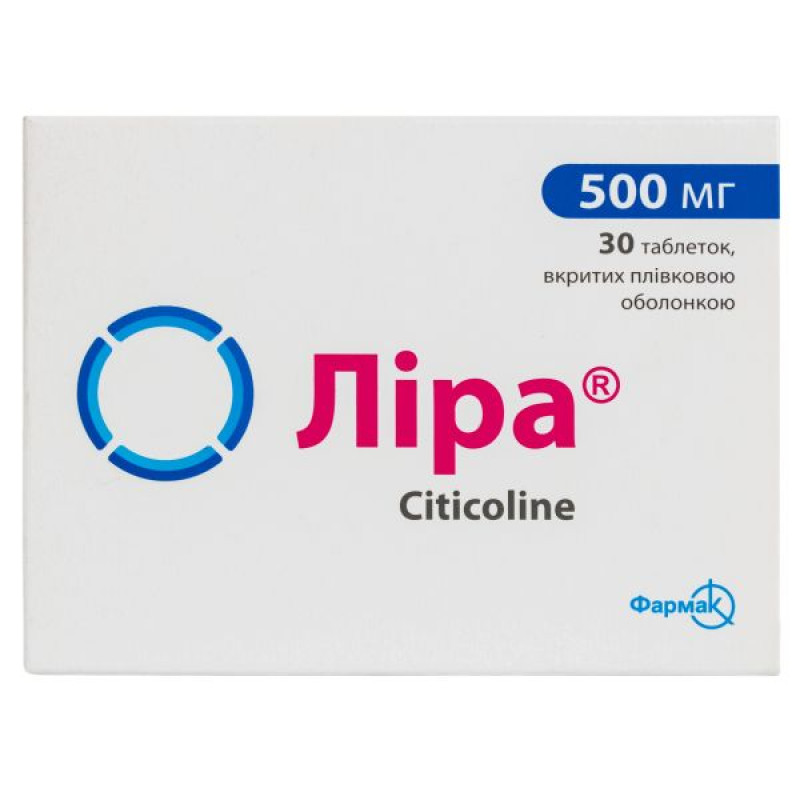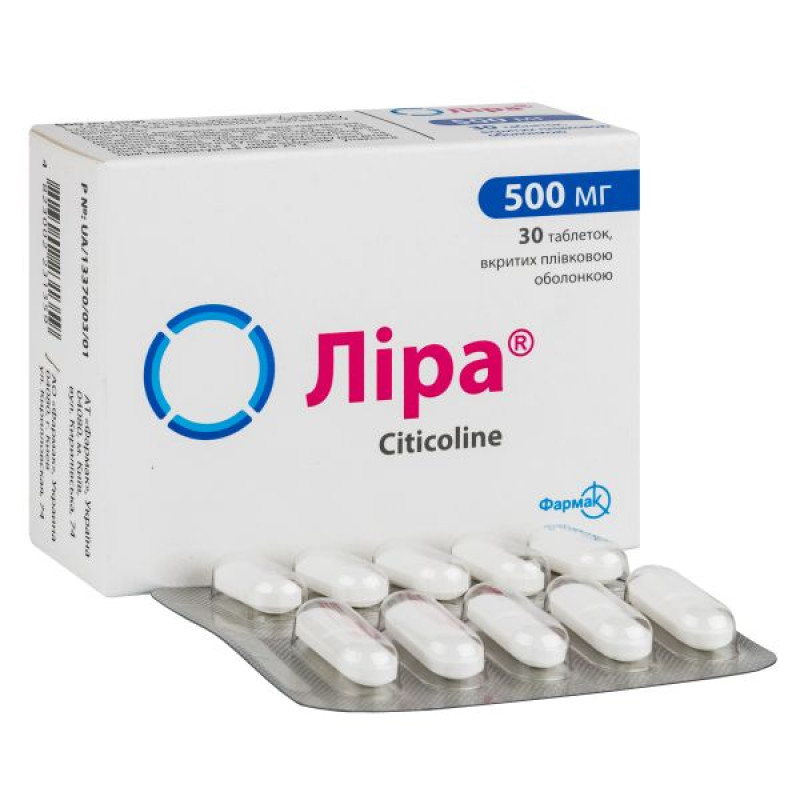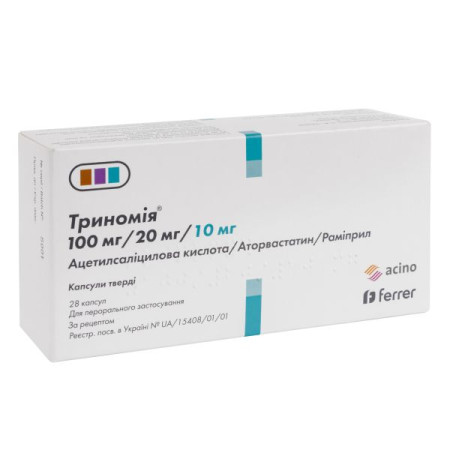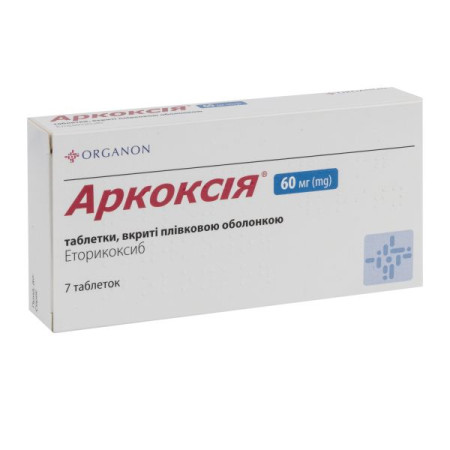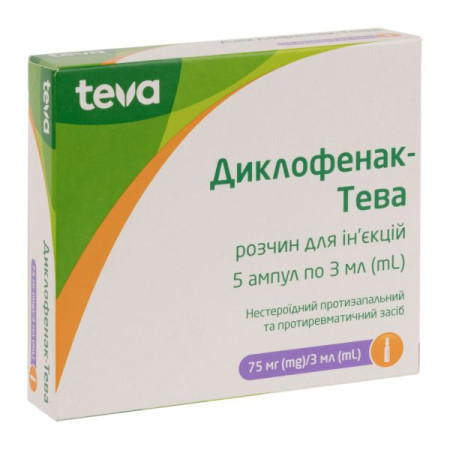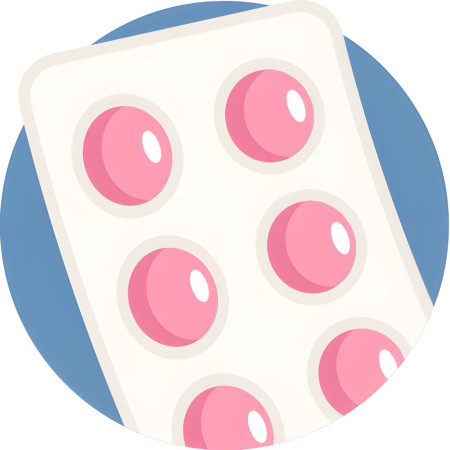Lira film-coated tablets 500 mg blister No. 30
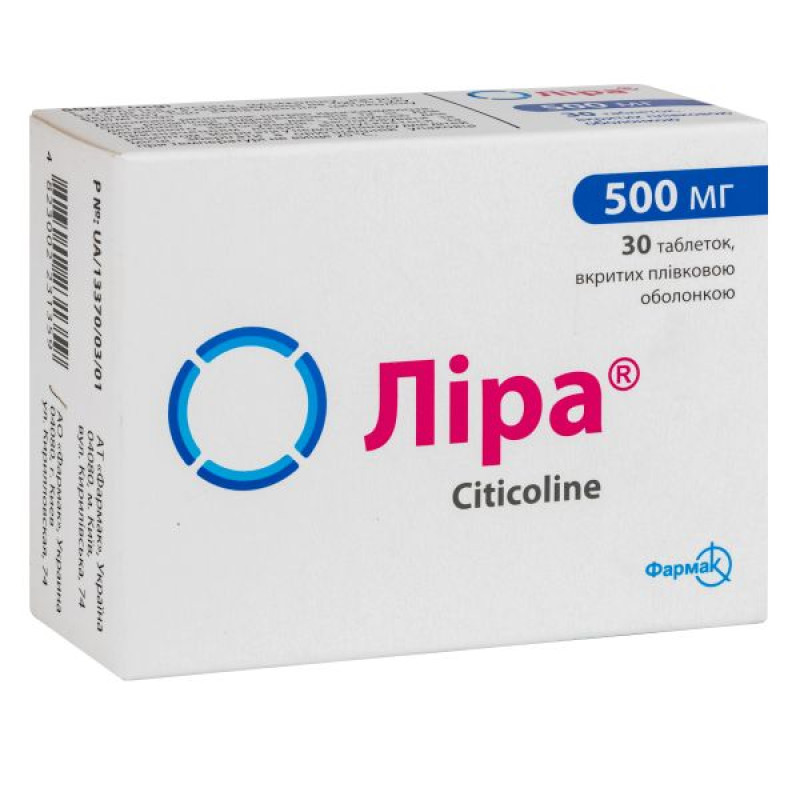
Instructions for use Lyra film-coated tablets 500 mg blister No. 30
Composition
active ingredient: citicoline;
1 tablet contains citicoline sodium 522.5 mg based on 100% dry matter (equivalent to citicoline 500.0 mg);
excipients: microcrystalline cellulose, colloidal anhydrous silicon dioxide, croscarmellose sodium, hydrogenated castor oil, talc, magnesium stearate;
film coating: Opadry white II 85 F 18422 (hydroxypropylmethylcellulose, titanium dioxide E 171, macrogol 8000); Opadry white 03 F 180011 (polyvinyl alcohol, titanium dioxide E 171, macrogol 4000, talc).
Dosage form
Film-coated tablets.
Main physicochemical properties: oblong tablets with a biconvex surface with a score, coated with a white or almost white film coating.
Pharmacotherapeutic group
Other psychostimulants and nootropics.
ATX code N06B X06.
Pharmacological properties
Pharmacodynamics.
Citicoline stimulates the biosynthesis of structural phospholipids of neuronal membranes, which is confirmed by magnetic resonance spectroscopy. Citicoline improves the functioning of membrane mechanisms such as ion pumps and receptors, without the regulation of which normal conduction of nerve impulses is impossible. Due to its stabilizing effect on the neuronal membrane, citicoline exhibits anti-edematous properties that contribute to the reabsorption of brain edema.
Clinical studies have shown that citicoline inhibits the activation of certain phospholipases (A1, A2, C, and D), reducing the formation of free radicals, preventing the destruction of membrane systems, and preserving antioxidant defense systems such as glutathione.
Citicoline preserves neuronal energy reserves and inhibits apoptosis, which improves cholinergic transmission.
It has been experimentally proven that citicoline also has a preventive neuroprotective effect in focal cerebral ischemia.
Clinical studies have shown that citicoline significantly increases functional recovery rates in patients with acute cerebrovascular accident, which coincides with a slowdown in the growth of ischemic brain damage according to neuroimaging data. In patients with traumatic brain injury, citicoline accelerates recovery and reduces the duration and intensity of post-traumatic syndrome.
Citicoline improves the level of attention and consciousness, helps reduce the manifestations of amnesia, cognitive and other neurological disorders associated with cerebral ischemia.
Pharmacokinetics.
Citicoline is well absorbed after oral, intramuscular and intravenous administration. Plasma choline levels increase significantly after administration by the above routes. Absorption after oral administration is almost complete, and bioavailability is almost the same as after intravenous administration.
Depending on the route of administration, the drug is metabolized in the intestine, liver to choline and cytidine. After administration, citicoline is widely distributed in brain structures with rapid incorporation of the choline fraction into structural phospholipids and the cytidine fraction into cytidine nucleotides and nucleic acids. Having reached the brain, citicoline is incorporated into cellular, cytoplasmic and mitochondrial membranes, participating in the construction of the phospholipid fraction.
Only a small amount of the dose is excreted in the urine and feces (less than 3%). Approximately 12% of the dose is excreted in exhaled CO2. There are two phases in the excretion of the drug in the urine: the first phase is about 36 hours, in which the rate of excretion decreases rapidly, and the second phase, in which the rate of excretion decreases much more slowly. The same phasic pattern is observed in the excretion of CO2: the rate of exhaled CO2 excretion decreases rapidly after about 15 hours, then it decreases much more slowly.
Clinical characteristics.
Indication
- Stroke, acute phase of cerebrovascular disorders and treatment of complications and consequences of cerebrovascular disorders.
- Traumatic brain injury and its neurological consequences.
- Cognitive and behavioral disorders due to chronic vascular and degenerative cerebral disorders.
Contraindication
Hypersensitivity to any component of the drug.
Increased tone of the parasympathetic nervous system.
Interaction with other drugs and other types of interactions.
The drug should not be used simultaneously with drugs containing meclofenoxate. Enhances the effect of levodopa.
Application features
The medicine contains hydrogenated castor oil, so stomach upset and diarrhea are possible.
This medicinal product contains 1.024 mmol/dose sodium. Caution should be exercised when used in patients on a controlled sodium diet.
Use during pregnancy or breastfeeding
There are no adequate data on the use of Lyra® in pregnant women.
There are no data on the excretion of citicoline into breast milk and its effects on the fetus. During pregnancy or breastfeeding, the drug is prescribed only if the expected benefit to the mother outweighs the potential risk to the fetus.
Ability to influence reaction speed when driving vehicles or other mechanisms
In some cases, some adverse reactions from the central nervous system may affect the ability to drive or operate complex machinery.
Method of administration and doses
The recommended dose for adults is 500 mg to 2000 mg per day (1–4 tablets).
The dosage of the drug and the duration of treatment depend on the severity of the brain lesions and are determined by the doctor.
Elderly patients do not require dose adjustment.
Children
Experience with the use of the drug in children is limited.
Overdose
Cases of overdose have not been described.
Adverse reactions
From the side of the central and peripheral nervous system: severe headache, vertigo, hallucinations.
From the cardiovascular system: arterial hypertension, arterial hypotension, tachycardia.
Respiratory system: shortness of breath.
On the part of the digestive system: nausea, vomiting, diarrhea.
On the part of the immune system: allergic reactions, including: rash, hyperemia, exanthema, urticaria, purpura, itching, angioedema, anaphylactic shock.
General reactions: chills.
Expiration date
2 years.
Do not use the drug after the expiration date indicated on the package.
Storage conditions
Store in the original packaging at a temperature not exceeding 25 ºС.
Keep out of reach of children.
Packaging
10 tablets in a blister. 3 blisters in a pack.
Vacation category
According to the recipe.
Producer
PJSC "Farmak".
Location of the manufacturer and its business address
Ukraine, 04080, Kyiv, Frunze St., 74.
There are no reviews for this product.
There are no reviews for this product, be the first to leave your review.
No questions about this product, be the first and ask your question.







